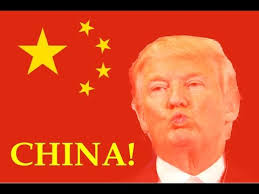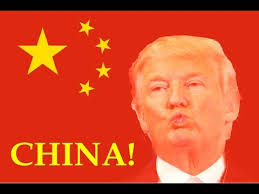
The world's top finance officials were relieved to find new Treasury Secretary Steven Mnuchin polite and business-like over the weekend after they were wary of their first official encounter with U.S. President Donald Trump's blustery trade agenda.
But on the issues of the newcomer's push to delete communique language on financing the fight against climate change and of 20 major economies to abandon a decade-old pledge to resist protectionism, they yielded ground.
And opting not to challenge Mnuchin on protectionism language were many of who were present and interacted with Mnuchin at the meeting in the spa and casino town of Baden-Baden, Germany, according to G20 officials.
Instead, in the hopes for moderation by the time Germany hosts a G20 leader's summit in July, they chose to give some space to him and Trump's new administration to refine their trade views.
The only Senate-confirmed Trump appointee working at Treasury is the former Goldman Sachs and commercial banker in Trump’s cabinet after five weeks into his new job. And to make good on campaign pledges to shrink U.S. trade deficits and grow American manufacturing jobs, the specific policies it will use are yet to be decided by the Trump administration.
Options under consideration range from renegotiating trade deals and enacting a proposed border tax levied on imports to more aggressive anti-dumping enforcement efforts.
Trump said he would quit the North American Free Trade agreement unless it is renegotiated to his liking and threatened unilateral tariffs on Mexican and Chinese goods during his campaign.
"We have a new administration in Washington which still has to define precisely its narrative, especially in the context of what was said in the campaign," said Pierre Moscovici, European Commission Economic Affairs Minister.
"I think Mnuchin is an articulate, constructive and pragmatic man," Moscovici said. "More work needs to be done to find common ground. It was not ready here. It is not a total surprise."
He was impressed with Mnuchin's understanding of economics and financial markets, said Japanese Finance Minister Taro Aso, who tangled with Mnuchin's predecessor, Jack Lew, last year over dollar-yen exchange rate volatility.
"That’s why I think we can do good business together," Aso told reporters.
While counterparts from China and France argued forcefully in favor of keeping the anti-protectionism pledge, Mnuchin took to the floor only once, reading from a prepared statement in the G20 plenary sessions, according to a G20 official.
U.S. negotiators behind the scenes insisted that they could no longer accept previous language vowing "to resist all forms of protectionism", while Mnuchin concentrated on making good first impressions with his G20 counterparts.
Using language viewed by some participants as preserving U.S. flexibility on trade policy, this was replaced with a watered-down pledge to "strengthen the contribution of trade to our economies."
Consensus could not be reached on the meaning of protectionism, said German Finance Minster Wolfgang Schaeuble, who met with Mnuchin in Berlin before the Baden Baden meeting.
Mnuchin may not have had a clear mandate to negotiate on trade issues, he suggested at a news conference.
Saying "the new language makes sense", Mnuchin said he knows Trump's desires on trade and negotiated them from Baden Baden when asked about this.
(Source:www.reuters.com)
But on the issues of the newcomer's push to delete communique language on financing the fight against climate change and of 20 major economies to abandon a decade-old pledge to resist protectionism, they yielded ground.
And opting not to challenge Mnuchin on protectionism language were many of who were present and interacted with Mnuchin at the meeting in the spa and casino town of Baden-Baden, Germany, according to G20 officials.
Instead, in the hopes for moderation by the time Germany hosts a G20 leader's summit in July, they chose to give some space to him and Trump's new administration to refine their trade views.
The only Senate-confirmed Trump appointee working at Treasury is the former Goldman Sachs and commercial banker in Trump’s cabinet after five weeks into his new job. And to make good on campaign pledges to shrink U.S. trade deficits and grow American manufacturing jobs, the specific policies it will use are yet to be decided by the Trump administration.
Options under consideration range from renegotiating trade deals and enacting a proposed border tax levied on imports to more aggressive anti-dumping enforcement efforts.
Trump said he would quit the North American Free Trade agreement unless it is renegotiated to his liking and threatened unilateral tariffs on Mexican and Chinese goods during his campaign.
"We have a new administration in Washington which still has to define precisely its narrative, especially in the context of what was said in the campaign," said Pierre Moscovici, European Commission Economic Affairs Minister.
"I think Mnuchin is an articulate, constructive and pragmatic man," Moscovici said. "More work needs to be done to find common ground. It was not ready here. It is not a total surprise."
He was impressed with Mnuchin's understanding of economics and financial markets, said Japanese Finance Minister Taro Aso, who tangled with Mnuchin's predecessor, Jack Lew, last year over dollar-yen exchange rate volatility.
"That’s why I think we can do good business together," Aso told reporters.
While counterparts from China and France argued forcefully in favor of keeping the anti-protectionism pledge, Mnuchin took to the floor only once, reading from a prepared statement in the G20 plenary sessions, according to a G20 official.
U.S. negotiators behind the scenes insisted that they could no longer accept previous language vowing "to resist all forms of protectionism", while Mnuchin concentrated on making good first impressions with his G20 counterparts.
Using language viewed by some participants as preserving U.S. flexibility on trade policy, this was replaced with a watered-down pledge to "strengthen the contribution of trade to our economies."
Consensus could not be reached on the meaning of protectionism, said German Finance Minster Wolfgang Schaeuble, who met with Mnuchin in Berlin before the Baden Baden meeting.
Mnuchin may not have had a clear mandate to negotiate on trade issues, he suggested at a news conference.
Saying "the new language makes sense", Mnuchin said he knows Trump's desires on trade and negotiated them from Baden Baden when asked about this.
(Source:www.reuters.com)





